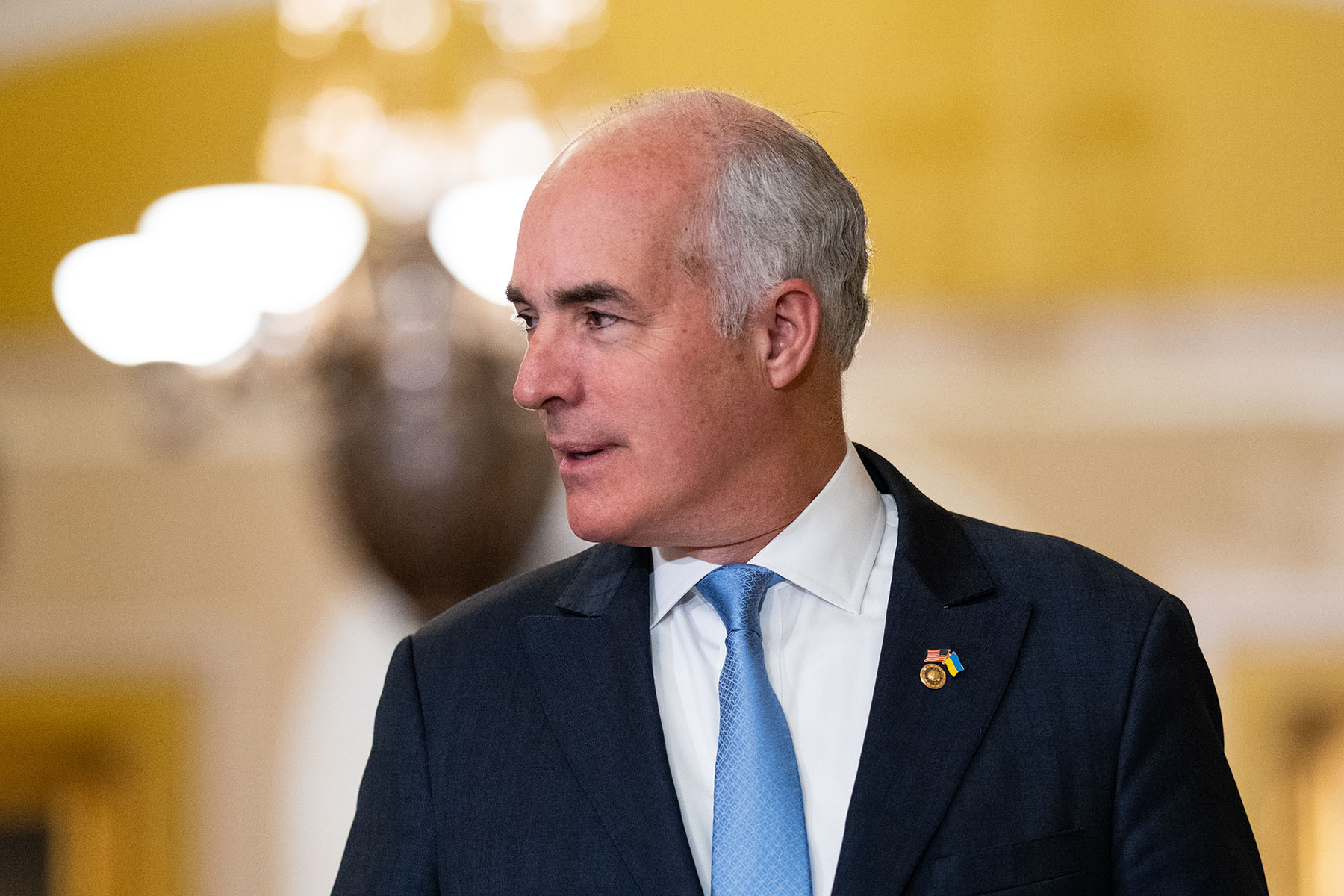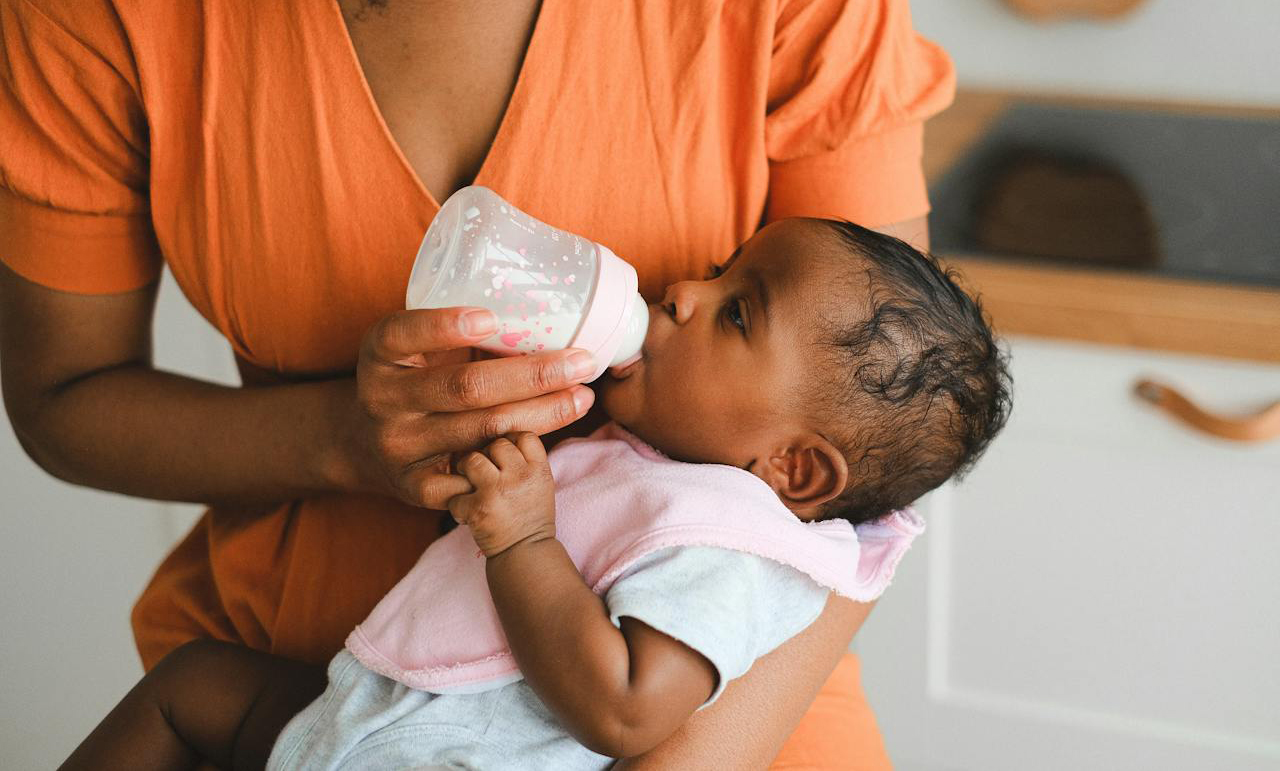Sen. Bob Casey sent a letter to the manufacturer of specialty formula Nutramigen after more than 650,000 cans were recalled last week.
This story was originally published by The 19th
By Chabeli Carrazana and Sara Luterman, The 19th
It’s been two years since the start of a formula shortage launched a mad dash to keep babies across the country fed and investigations into the formula market. Now, another major recall of a specialty formula is sparking concerns and drawing questions from Congress.
In a letter first shared exclusively with The 19th, Sen. Bob Casey, a Democrat from Pennsylvania, asked manufacturer Reckitt/Mead Johnson Nutrition for answers after more than 675,000 cans of the infant powder formula Nutramigen, a specialty product for infants allergic to cow’s milk, were recalled.
“While, fortunately, there have been no reports of illness, this news is alarming to parents and caregivers whose infants rely on this formula, and to families still reeling from the shortages and supply problems of the last two years,” Casey wrote in a letter sent Friday.
The recall happened after batches of Nutramigen exported to Israel were found to have possible contamination. In the letter, Casey asked the company to detail what steps it’s taking to mitigate future contamination. He also pressed for details about the impact the recall might have on creating regional shortages of Nutramigen, particularly for families on WIC, the supplemental program for low-income women and children. As much as 65 percent of all formulas are purchased by WIC families.
“Parents of infants with allergies have enough on their plate without the extra burden of having to constantly check to see if their formula has been recalled, or worse, having to find another formula for their kids when a recall does happen,” Casey told the 19th in a statement. “I’m pushing for answers from Reckitt because we need accountability from formula makers that they’re doing everything in their power to make sure this never happens again.”
This is the second Reckitt recall in less than a year. In February 2023, the company recalled about 145,000 cans of its ProSobee Simply Plant-Based Infant Formula due to possible Cronobacter sakazakii contamination, the same pathogen involved in the current recall and at the heart of the formula shortage in 2022.
Israeli officials first notified the U.S. Food and Drug Administration on December 14 that formula imported from a facility in Michigan had tested positive for Cronobacter. Reckitt told The 19th in a statement that it had manufactured the batch for distribution in Israel and a routine test done by the Israeli Ministry of Health at the border came back positive for Cronobacter. Reckitt then tested samples of the finished product from the same batch that came back negative. A subsequent facility inspection by the FDA also found no trace of Cronobacter.
“Out of an abundance of caution,” Reckitt chose to voluntarily recall batches sold in the U.S. market that were produced in June 2023 and distributed through August 2023, the manufacturer said. The recall only affects Nutramigen Powder in 12.6 and 19.8 oz cans.
Reckitt notified the FDA last week of the recall. As of now, Reckitt’s Michigan plant is still operating, but it’s undergoing an inspection by the FDA. Other Reckitt formulas and other batches of Nutramigen are not affected. The company believes “that much, if not all, of the products recalled in the United States have been consumed,” and there have been no reports of illnesses to date.
“We are committed to the highest level of quality and safety and it is for this reason that we have taken this measure,” Reckitt said.
Two years ago, FDA officials closed down a different plant in Michigan after four infants became sick with bacterial infections after ingesting one of three Abbott Nutrition brand specialty formulas: Similac, Alimentum and EleCare. The U.S. formula market is dominated by three companies, with Abbott and Reckitt being the largest, followed by Gerber.
Last year, the head FDA official overseeing the formula shortage, Frank Yiannas, resigned as a result of the fallout. Since then, the FDA has begun to overhaul its food safety division, including putting one person in charge of food safety and policy.
In December, the FDA announced it had finalized a proposal for a unified Human Foods Program and new Office of Regulatory Affairs model, which includes beefing up staffing to handle the oversight and regulation of infant formula. The agency is creating a “critical foods investigator cadre” that will specialize in oversight of the formula industry. Hiring for that group is underway, the agency said last month.

(Bill Clark/CQ-Roll Call/Getty Images)
In 2022, the closure of the Abbott plant, the largest in the country, launched a nationwide formula shortage that affected every brand and caused parents to switch to the few other options they had. For many, that was the Reckitt specialty formula brands, including Nutramigen.
It’s still unclear whether the Nutramigen recall will lead to a broader shortage, but even prior to the recall, parts of the country were experiencing shortages.
Just last month, South Carolina experienced shortages of Nutramigen, with news reports detailing how caregivers were spending hours a week searching stores for the formula.
In West Virginia, the Gabriel Project–Wetzel Site, a nonprofit that provides free formula to families, has had trouble finding Nutramigen for the past six months, said colead volunteer Valerie Brown.
“We’ve had a lot of trouble getting that formula and assume this will only add to the shortage,” Brown said.
Reckitt told The 19th in a statement that demand for Nutramigen has risen over the past year, and that has likely “led to limited availability” in areas of the country. It is significant, then, that those same products are now impacted by a recall.
Reckitt has faced closer scrutiny from the FDA since last year. In August, the agency sent a warning letter to three manufacturers — Reckitt, ByHeart Inc. and Perrigo Wisconsin, LLC — that had recalls from late 2022 to early 2023.
The letter to Reckitt detailed how the company had, in the FDA’s view, not done a thorough enough analysis of the source of the contamination at its Michigan facility after Cronobacter was found in “high and critical hygiene zones” between July 2022 and February 2023. The FDA said Reckitt had also failed to look deeply at other potential sources of contamination.
Parents and other caregivers who rely on Nutramigen have few other options in the event of shortages. Kat Zambon’s daughter relied on Nutramigen when she was using formula. Her daughter was born prematurely and wasn’t able to get enough calories from breast milk alone. Her pediatrician recommended Nutramigen because of a suspected allergy.
This was in 2016. But because Nutramigen is a specialty product, Zambon still sometimes struggled to find the right formula, even without a shortage or recall.
“When you have a child who has a special situation like that, it’s very stressful. That they might not be getting the calories or the nutrients they need to grow is a very stressful thing,” Zambon told The 19th. Her daughter is in second grade and thriving now, but Zambon still clearly remembers the anxiety she felt the times she could not find the formula in sufficient quantities.
“I really empathize with parents who are having that challenge right now. Because feeling like you can’t feed your kid in particular is just awful, but especially when you are also worried about your kid because they’ve had a challenge growing up,” she said.
The impacts of the initial formula shortage have been long lasting. About a third of parents with children under the age of 1 reported difficulty obtaining formula at the end of October, the most recent date for which there is data from the U.S. Census Bureau. That share has remained consistent since September 2022, when the bureau began to survey caregivers about infant formula.
Elyssa Schmier is the vice president for government relations at MomsRising, an advocacy group that has worked with President Joe Biden’s administration on solutions to the formula crisis. She said that while the new office overseeing the formula industry is an “excellent” step, there’s “a lot of concern” that few lessons have been learned from the formula crisis that began two years ago.
“There still feels like there’s quite a monopoly, there’s only a handful of producers of formula, especially specialty formulas, we haven’t built back any sort of stockpiles or figured out that situation,” Schmier said.
Any impact will hit low-income families hardest. During the formula shortage, waivers were issued to allow families using WIC more flexibility on the types and amount of formula they could purchase using WIC vouchers. Typically, WIC contracts with only one manufacturer per state, limiting recipients to only those formulas. But the waivers expired in the summer of 2023.
Nutramigen is also one of the most expensive formulas on the market at about $30 to $50 a can, and families relied on WIC to help them cover the cost.
“When you’re a parent who maybe has tried a bunch of different things, and you land on the one formula that doesn’t make your child sick, or your preemie baby is able to gain weight because they use that formula, and then that’s taken away from you — the options that they have are not plentiful,” Schmier said.

Blog dedicated to news and viewpoints from Black journalists who support, and inform, communities of color.
Original content, and curated articles, are posted and updated daily.
